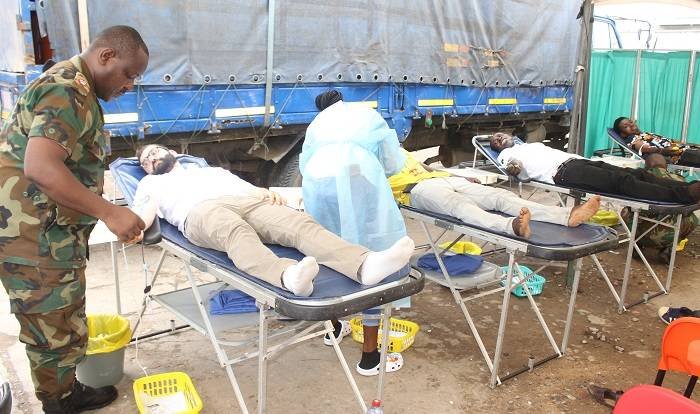More than 50 pints of blood was donated to the 37 Military Hospital Blood Bank over the weekend in Accra by staff of Qualiplast Ghana Limited as part of activities marking the company’s 50th anniversary celebration.
The General Manager of the Company, Mr Joseph Akl, said the blood donation forms part of the company’s corporate social responsibility in giving back to the society where they operate over the past 50 years.
“Health is wealth, as a company we prioritise the health of our workers, there is currently an in-house clinic which see to the medical health of our workers in their day to day activities,” he added.
He urged the staff to make their health a priority at all times by visiting the health facility when they were indispose.
Mr Akl commended the staff for coming out in the numbers to donate blood to stock the hospital’s blood bank to save lives.
He assured the hospital of their commitment to supporting them save lives during emergencies.
The Principal Biomedical Scientist at the 37 Military Hospital Blood Bank, Major Peter Kwame Awuah Kwarteng who led a team of medical professionals told the Ghanaian Times that the blood collected would be screened of Hepatitis B and C, infections and sexually transmitted diseases, among others, before transfused.
He said “blood is not manufactured, someone has to give for another to receive and there is the need for continuous supply of blood to ensure that blood is available during emergencies such as accidents, deliveries at the hospitals.”
Major Kwarteng encouraged the public to donate blood to save lives during emergencies, and disregard myth surrounding blood donation, adding that in a year one could donate three times within four months intervals.
Further, he appealed to eligible blood donors to visit blood collection centres and donate blood to save and improve lives of patients with severe conditions.
“It is beneficial for an individual to donate blood regularly to help the body generate fresh cells,” he added.
He said “our mission as the blood bank is to attain regular national supply of safe blood that relies solely on voluntary unpaid blood donation to those in need.”
Major Kwarteng commended the company and the staff for the kind gesture and urged other companies and organisations to emulate.
He said such negative practice deterred the public from donating to the blood banks, which contributed to its shortage in the country.
As part of the programme to commemorate their 50th anniversary, the company would organise float, clean-up exercise, donation to an orphanage, games, dinner dance and awards night.
BY ANITA NYARKO-YIRENKYI

